269 items found
Page 3 of 3
-
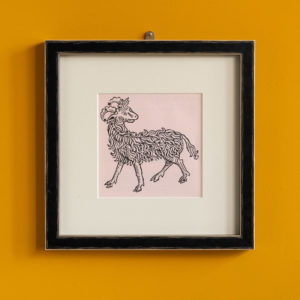
Poeticon Astronomicon e De Magnis Copiunctionibus – Aries,
£195 eachPoeticon Astronomicon e De Magnis Copiunctionibus – Aries,
Poeticon Astronomicon was originally published in Venice, 1485 whilst e De Magnis Copiunctionibus was published in Augsburg 1489. The descriptions come from William Lilly of London in 1647.£195 each -
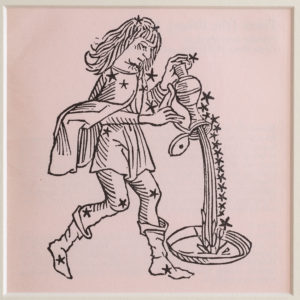
Poeticon Astronomicon e De Magnis Copiunctionibus – Aquarius,
£195 eachPoeticon Astronomicon e De Magnis Copiunctionibus – Aquarius,
Poeticon Astronomicon was originally published in Venice, 1485 whilst e De Magnis Copiunctionibus was published in Augsburg 1489. The descriptions come from William Lilly of London in 1647.£195 each -
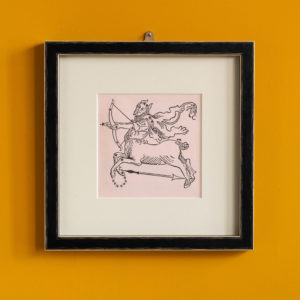
Poeticon Astronomicon e De Magnis Copiunctionibus – Sagittarius,
£195 eachPoeticon Astronomicon e De Magnis Copiunctionibus – Sagittarius,
Poeticon Astronomicon was originally published in Venice, 1485 whilst e De Magnis Copiunctionibus was published in Augsburg 1489. The descriptions come from William Lilly of London in 1647.£195 each -
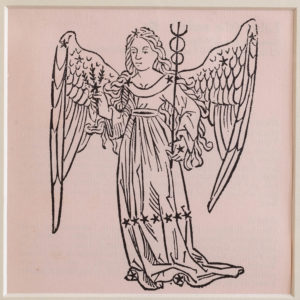
Poeticon Astronomicon e De Magnis Copiunctionibus – Virgo,
£195 eachPoeticon Astronomicon e De Magnis Copiunctionibus – Virgo,
Poeticon Astronomicon was originally published in Venice, 1485 whilst e De Magnis Copiunctionibus was published in Augsburg 1489. The descriptions come from William Lilly of London in 1647.£195 each -
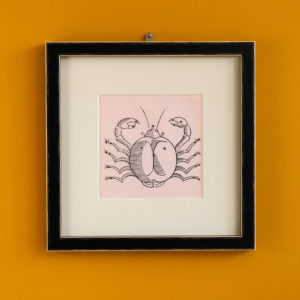
Poeticon Astronomicon e De Magnis Copiunctionibus – Cancer,
£195 eachPoeticon Astronomicon e De Magnis Copiunctionibus – Cancer,
Poeticon Astronomicon was originally published in Venice, 1485 whilst e De Magnis Copiunctionibus was published in Augsburg 1489. The descriptions come from William Lilly of London in 1647.£195 each -
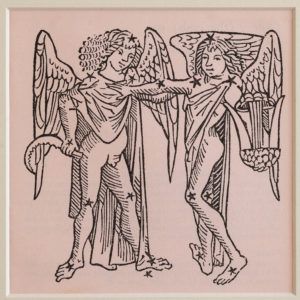
Poeticon Astronomicon e De Magnis Copiunctionibus – Gemini,
£195 eachPoeticon Astronomicon e De Magnis Copiunctionibus – Gemini,
Poeticon Astronomicon was originally published in Venice, 1485 whilst e De Magnis Copiunctionibus was published in Augsburg 1489. The descriptions come from William Lilly of London in 1647.£195 each -
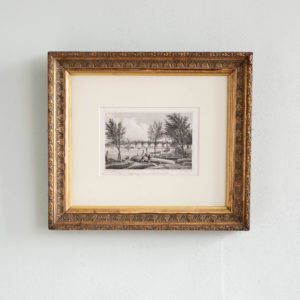
Vauxhall Bridge from Mill Bank
£195Vauxhall Bridge from Mill Bank
Vauxhall Bridge as viewed from Millbank in 1826. The bridge was begun in 1811 and opened to the public in August 1816.£195 -
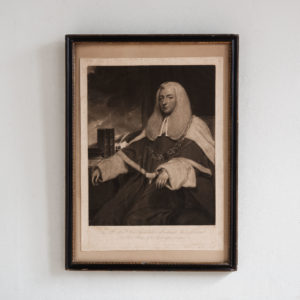
Sir Archibald Macdonald, Knight and Baronet.
£190Sir Archibald Macdonald, Knight and Baronet.
A framed and mounted three-quarter-length mezzotint portrait of Sir Archibald Macdonald, 1st Baronet by by Henry Meyer. Sir Archibald Macdonald, 1st Baronet (13 July 1747 – 18 May 1826) was Scottish-born English lawyer, judge and politician. Born at Armadale Castle on The Isle of Skye, he was sent to England early to keep him away from Jacobite influence. He attended Westminster School from 1760 from where he went on to Christ Church, Oxford, graduating B.A. in 1768 and M.A. in 1772. He was subsequently called to the bar at Lincoln's Inn. Initially a Whig he later joined the King's party and as King's Counsel he was an enthusiastic prosecutor of Radicals, including the pamphleteer and agitator Thomas Paine for his Rights of Man in December 1792. A convivial man, he was nicknamed ‘the Arabian knight' in his lifetime for apparently having 'a thousand and one tales'. He is shown sitting in armchair, in wig and judicial robes; books, quill pen, inkpot by window at left£190 -
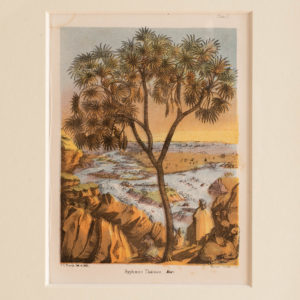
Popular History of the Palms and their Allies – Hyphaene Thebaica
£180 eachPopular History of the Palms and their Allies – Hyphaene Thebaica
Based on the work of Berthold Seemann ,was a botanist who made his name when he was appointed naturalist (on the recommendation of W J Hooker) to HMS Herald for the Kellett voyage of exploration to the American West Coast and Pacific.£180 each -
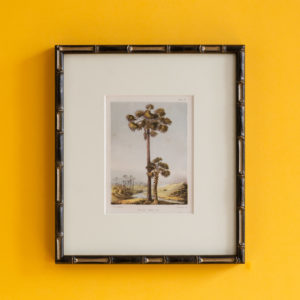
Popular History of the Palms and their Allies – Mauritia vinifera
£180 eachPopular History of the Palms and their Allies – Mauritia vinifera
Based on the work of Berthold Seemann ,was a botanist who made his name when he was appointed naturalist (on the recommendation of W J Hooker) to HMS Herald for the Kellett voyage of exploration to the American West Coast and Pacific.£180 each -
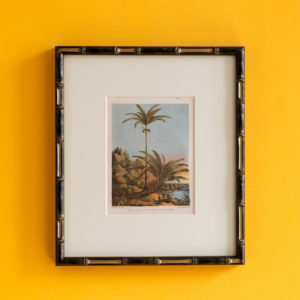
Popular History of the Palms and their Allies – Elaeis melanococca & Iriartea exorrhiza
£180 eachPopular History of the Palms and their Allies – Elaeis melanococca & Iriartea exorrhiza
Based on the work of Berthold Seemann ,was a botanist who made his name when he was appointed naturalist (on the recommendation of W J Hooker) to HMS Herald for the Kellett voyage of exploration to the American West Coast and Pacific.£180 each -
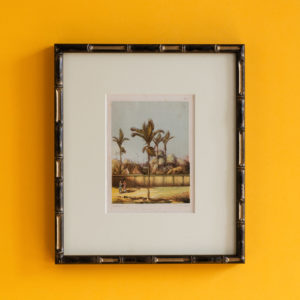
Popular History of the Palms and their Allies – Areca catechu
£180 eachPopular History of the Palms and their Allies – Areca catechu
Based on the work of Berthold Seemann ,was a botanist who made his name when he was appointed naturalist (on the recommendation of W J Hooker) to HMS Herald for the Kellett voyage of exploration to the American West Coast and Pacific.£180 each -

Popular History of the Palms and their Allies – Acrocomia Mexicana & Chamaedorea Schiedeana
£180 eachPopular History of the Palms and their Allies – Acrocomia Mexicana & Chamaedorea Schiedeana
Based on the work of Berthold Seemann ,was a botanist who made his name when he was appointed naturalist (on the recommendation of W J Hooker) to HMS Herald for the Kellett voyage of exploration to the American West Coast and Pacific.£180 each -
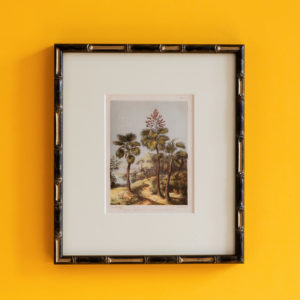
Popular History of the Palms and their Allies – Borassus flabelliformis & Corypha umbraculifera
£180 eachPopular History of the Palms and their Allies – Borassus flabelliformis & Corypha umbraculifera
Based on the work of Berthold Seemann ,was a botanist who made his name when he was appointed naturalist (on the recommendation of W J Hooker) to HMS Herald for the Kellett voyage of exploration to the American West Coast and Pacific.£180 each -
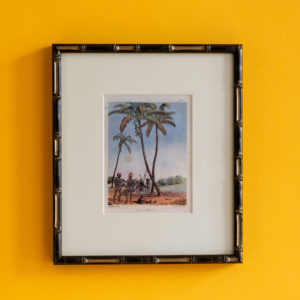
Popular History of the Palms and their Allies – Cocos nucifera
£180 eachPopular History of the Palms and their Allies – Cocos nucifera
Based on the work of Berthold Seemann ,was a botanist who made his name when he was appointed naturalist (on the recommendation of W J Hooker) to HMS Herald for the Kellett voyage of exploration to the American West Coast and Pacific.£180 each -
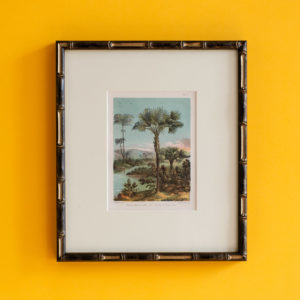
Popular History of the Palms and their Allies – Oreodoxa oleracea & Thrinax multiflora
£180 eachPopular History of the Palms and their Allies – Oreodoxa oleracea & Thrinax multiflora
Based on the work of Berthold Seemann ,was a botanist who made his name when he was appointed naturalist (on the recommendation of W J Hooker) to HMS Herald for the Kellett voyage of exploration to the American West Coast and Pacific.£180 each -
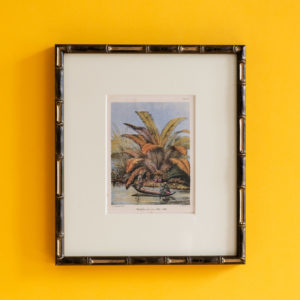
Popular History of the Palms and their Allies – Phytelephas macrocarpa
£180 eachPopular History of the Palms and their Allies – Phytelephas macrocarpa
Based on the work of Berthold Seemann ,was a botanist who made his name when he was appointed naturalist (on the recommendation of W J Hooker) to HMS Herald for the Kellett voyage of exploration to the American West Coast and Pacific.£180 each -
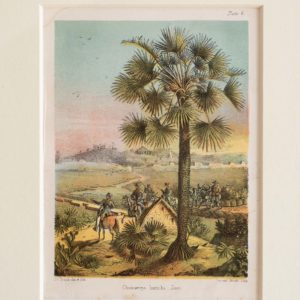
Popular History of the Palms and their Allies – Chamaerops humilis
£180 eachPopular History of the Palms and their Allies – Chamaerops humilis
Based on the work of Berthold Seemann ,was a botanist who made his name when he was appointed naturalist (on the recommendation of W J Hooker) to HMS Herald for the Kellett voyage of exploration to the American West Coast and Pacific.£180 each -
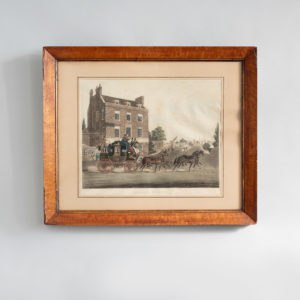
The Quicksilver
£180The Quicksilver
A Royal Mail coach, The Quicksilver, passes the Star and Garter at the Brentford end of Kew Bridge. The Quicksilver was the London to Falmouth Royal Mail Coach and operated in the years between 1835 and 1859. In 1837 it became the fastest long-distance mail coach in England with an average speed of 10.25 miles an hour with the London to Falmouth journey being accomplished in 16 hours and 34 minutes. The Star and Garter was a venerable old Coaching Inn positioned on the Middlesex shore of the Thames by Kew Bridge. It closed in 1983. Mounted and framed in an angled maple frame.£180 -
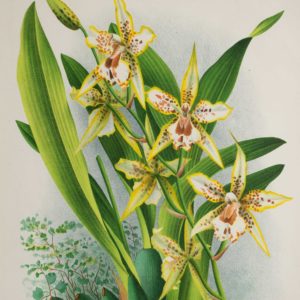
Linden Botanicals, Odontoglossum Duvivieranum,
£175 eachLinden Botanicals, Odontoglossum Duvivieranum,
L’Illustration Horticole, was a monthly horticultural review, founded in 1854 in Ghent, Belgium, by Ambroise Verschaffelt, a nurseryman who specialised in new plant introductions from South America. The lavish illustrations were produced by some of the very best botanical artists and lithographers – A. Goosens, P. De Pannemaeker and J. Goffart. The L’Illustration Horticole although founded by Jean Jules Linden (1817 – 1898) became a collaborative effort of many great horticulturists and field botanists of the day. Jean Linden in his own right was a renowned orchid grower and collector. Each monthly edition featured chromolithograph of botanical prints. Plants such as orchids, camellias, roses and leafy plants such as ferns and palm trees were represented. The magazine’s scope included pictures, descriptions, the history and culture of “the most remarkable plants,” new introductions, horticultural history, botanical expeditions, and accounts of the major expositions and of new works on botany and horticulture as well as garden descriptions and layouts.£175 each -
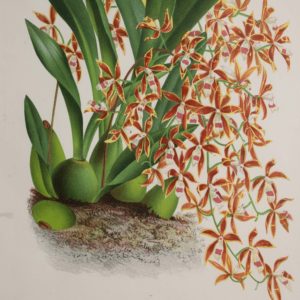
Linden Botanicals, Odontoglossum Constricutum,
£175 eachLinden Botanicals, Odontoglossum Constricutum,
L’Illustration Horticole, was a monthly horticultural review, founded in 1854 in Ghent, Belgium, by Ambroise Verschaffelt, a nurseryman who specialised in new plant introductions from South America. The lavish illustrations were produced by some of the very best botanical artists and lithographers – A. Goosens, P. De Pannemaeker and J. Goffart. The L’Illustration Horticole although founded by Jean Jules Linden (1817 – 1898) became a collaborative effort of many great horticulturists and field botanists of the day. Jean Linden in his own right was a renowned orchid grower and collector. Each monthly edition featured chromolithograph of botanical prints. Plants such as orchids, camellias, roses and leafy plants such as ferns and palm trees were represented. The magazine’s scope included pictures, descriptions, the history and culture of “the most remarkable plants,” new introductions, horticultural history, botanical expeditions, and accounts of the major expositions and of new works on botany and horticulture as well as garden descriptions and layouts.£175 each -
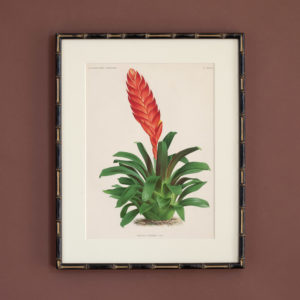
Linden Botanicals, Vriesea Fulgida,
£175 eachLinden Botanicals, Vriesea Fulgida,
L’Illustration Horticole, was a monthly horticultural review, founded in 1854 in Ghent, Belgium, by Ambroise Verschaffelt, a nurseryman who specialised in new plant introductions from South America. The lavish illustrations were produced by some of the very best botanical artists and lithographers – A. Goosens, P. De Pannemaeker and J. Goffart. The L’Illustration Horticole although founded by Jean Jules Linden (1817 – 1898) became a collaborative effort of many great horticulturists and field botanists of the day. Jean Linden in his own right was a renowned orchid grower and collector. Each monthly edition featured chromolithograph of botanical prints. Plants such as orchids, camellias, roses and leafy plants such as ferns and palm trees were represented. The magazine’s scope included pictures, descriptions, the history and culture of “the most remarkable plants,” new introductions, horticultural history, botanical expeditions, and accounts of the major expositions and of new works on botany and horticulture as well as garden descriptions and layouts.£175 each -
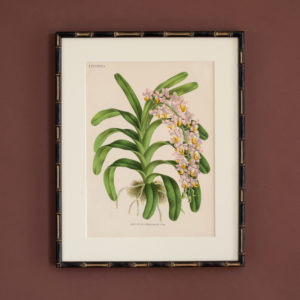
Linden Botanicals, Aerides Reichenbachi,
£175 eachLinden Botanicals, Aerides Reichenbachi,
L’Illustration Horticole, was a monthly horticultural review, founded in 1854 in Ghent, Belgium, by Ambroise Verschaffelt, a nurseryman who specialised in new plant introductions from South America. The lavish illustrations were produced by some of the very best botanical artists and lithographers – A. Goosens, P. De Pannemaeker and J. Goffart. The L’Illustration Horticole although founded by Jean Jules Linden (1817 – 1898) became a collaborative effort of many great horticulturists and field botanists of the day. Jean Linden in his own right was a renowned orchid grower and collector. Each monthly edition featured chromolithograph of botanical prints. Plants such as orchids, camellias, roses and leafy plants such as ferns and palm trees were represented. The magazine’s scope included pictures, descriptions, the history and culture of “the most remarkable plants,” new introductions, horticultural history, botanical expeditions, and accounts of the major expositions and of new works on botany and horticulture as well as garden descriptions and layouts.£175 each -
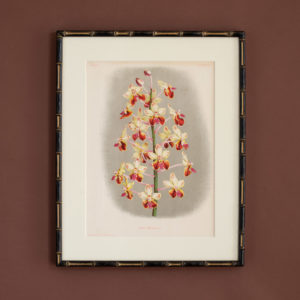
Linden Botanicals, Vanda Superba,
£175 eachLinden Botanicals, Vanda Superba,
L’Illustration Horticole, was a monthly horticultural review, founded in 1854 in Ghent, Belgium, by Ambroise Verschaffelt, a nurseryman who specialised in new plant introductions from South America. The lavish illustrations were produced by some of the very best botanical artists and lithographers – A. Goosens, P. De Pannemaeker and J. Goffart. The L’Illustration Horticole although founded by Jean Jules Linden (1817 – 1898) became a collaborative effort of many great horticulturists and field botanists of the day. Jean Linden in his own right was a renowned orchid grower and collector. Each monthly edition featured chromolithograph of botanical prints. Plants such as orchids, camellias, roses and leafy plants such as ferns and palm trees were represented. The magazine’s scope included pictures, descriptions, the history and culture of “the most remarkable plants,” new introductions, horticultural history, botanical expeditions, and accounts of the major expositions and of new works on botany and horticulture as well as garden descriptions and layouts.£175 each -
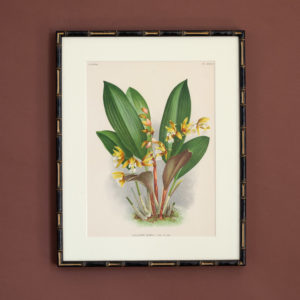
Linden Botanicals, Coelogyne Lurida,
£175 eachLinden Botanicals, Coelogyne Lurida,
L’Illustration Horticole, was a monthly horticultural review, founded in 1854 in Ghent, Belgium, by Ambroise Verschaffelt, a nurseryman who specialised in new plant introductions from South America. The lavish illustrations were produced by some of the very best botanical artists and lithographers – A. Goosens, P. De Pannemaeker and J. Goffart. The L’Illustration Horticole although founded by Jean Jules Linden (1817 – 1898) became a collaborative effort of many great horticulturists and field botanists of the day. Jean Linden in his own right was a renowned orchid grower and collector. Each monthly edition featured chromolithograph of botanical prints. Plants such as orchids, camellias, roses and leafy plants such as ferns and palm trees were represented. The magazine’s scope included pictures, descriptions, the history and culture of “the most remarkable plants,” new introductions, horticultural history, botanical expeditions, and accounts of the major expositions and of new works on botany and horticulture as well as garden descriptions and layouts.£175 each -
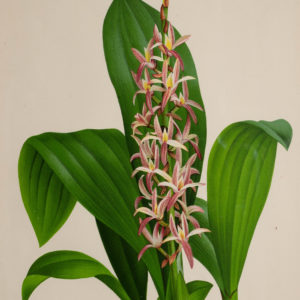
Linden Botanicals, Eria Striolata,
£175 eachLinden Botanicals, Eria Striolata,
L’Illustration Horticole, was a monthly horticultural review, founded in 1854 in Ghent, Belgium, by Ambroise Verschaffelt, a nurseryman who specialised in new plant introductions from South America. The lavish illustrations were produced by some of the very best botanical artists and lithographers – A. Goosens, P. De Pannemaeker and J. Goffart. The L’Illustration Horticole although founded by Jean Jules Linden (1817 – 1898) became a collaborative effort of many great horticulturists and field botanists of the day. Jean Linden in his own right was a renowned orchid grower and collector. Each monthly edition featured chromolithograph of botanical prints. Plants such as orchids, camellias, roses and leafy plants such as ferns and palm trees were represented. The magazine’s scope included pictures, descriptions, the history and culture of “the most remarkable plants,” new introductions, horticultural history, botanical expeditions, and accounts of the major expositions and of new works on botany and horticulture as well as garden descriptions and layouts.£175 each -
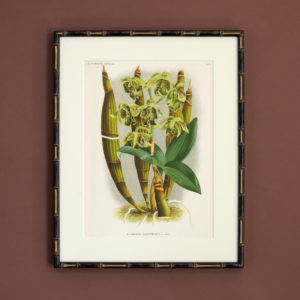
Linden Botanicals, Dendiobium Macrophyllum,
£175 eachLinden Botanicals, Dendiobium Macrophyllum,
L’Illustration Horticole, was a monthly horticultural review, founded in 1854 in Ghent, Belgium, by Ambroise Verschaffelt, a nurseryman who specialised in new plant introductions from South America. The lavish illustrations were produced by some of the very best botanical artists and lithographers – A. Goosens, P. De Pannemaeker and J. Goffart. The L’Illustration Horticole although founded by Jean Jules Linden (1817 – 1898) became a collaborative effort of many great horticulturists and field botanists of the day. Jean Linden in his own right was a renowned orchid grower and collector. Each monthly edition featured chromolithograph of botanical prints. Plants such as orchids, camellias, roses and leafy plants such as ferns and palm trees were represented. The magazine’s scope included pictures, descriptions, the history and culture of “the most remarkable plants,” new introductions, horticultural history, botanical expeditions, and accounts of the major expositions and of new works on botany and horticulture as well as garden descriptions and layouts.£175 each -
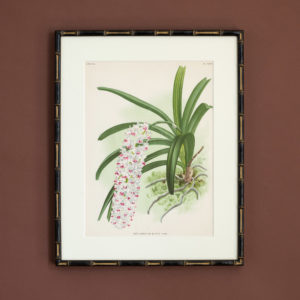
Linden Botanicals, Rhynchostylis Retusa,
£175 eachLinden Botanicals, Rhynchostylis Retusa,
L’Illustration Horticole, was a monthly horticultural review, founded in 1854 in Ghent, Belgium, by Ambroise Verschaffelt, a nurseryman who specialised in new plant introductions from South America. The lavish illustrations were produced by some of the very best botanical artists and lithographers – A. Goosens, P. De Pannemaeker and J. Goffart. The L’Illustration Horticole although founded by Jean Jules Linden (1817 – 1898) became a collaborative effort of many great horticulturists and field botanists of the day. Jean Linden in his own right was a renowned orchid grower and collector. Each monthly edition featured chromolithograph of botanical prints. Plants such as orchids, camellias, roses and leafy plants such as ferns and palm trees were represented. The magazine’s scope included pictures, descriptions, the history and culture of “the most remarkable plants,” new introductions, horticultural history, botanical expeditions, and accounts of the major expositions and of new works on botany and horticulture as well as garden descriptions and layouts.£175 each -
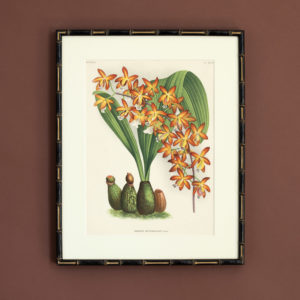
Linden Botanicals, Eriopsis Rutidobulbon,
£175 eachLinden Botanicals, Eriopsis Rutidobulbon,
L’Illustration Horticole, was a monthly horticultural review, founded in 1854 in Ghent, Belgium, by Ambroise Verschaffelt, a nurseryman who specialised in new plant introductions from South America. The lavish illustrations were produced by some of the very best botanical artists and lithographers – A. Goosens, P. De Pannemaeker and J. Goffart. The L’Illustration Horticole although founded by Jean Jules Linden (1817 – 1898) became a collaborative effort of many great horticulturists and field botanists of the day. Jean Linden in his own right was a renowned orchid grower and collector. Each monthly edition featured chromolithograph of botanical prints. Plants such as orchids, camellias, roses and leafy plants such as ferns and palm trees were represented. The magazine’s scope included pictures, descriptions, the history and culture of “the most remarkable plants,” new introductions, horticultural history, botanical expeditions, and accounts of the major expositions and of new works on botany and horticulture as well as garden descriptions and layouts.£175 each -
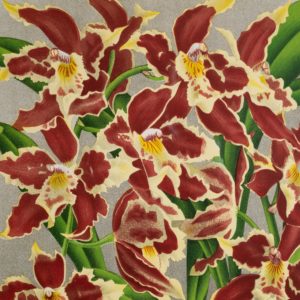
Linden Botanicals, Odontoglossum Crispum,
£175 eachLinden Botanicals, Odontoglossum Crispum,
L’Illustration Horticole, was a monthly horticultural review, founded in 1854 in Ghent, Belgium, by Ambroise Verschaffelt, a nurseryman who specialised in new plant introductions from South America. The lavish illustrations were produced by some of the very best botanical artists and lithographers – A. Goosens, P. De Pannemaeker and J. Goffart. The L’Illustration Horticole although founded by Jean Jules Linden (1817 – 1898) became a collaborative effort of many great horticulturists and field botanists of the day. Jean Linden in his own right was a renowned orchid grower and collector. Each monthly edition featured chromolithograph of botanical prints. Plants such as orchids, camellias, roses and leafy plants such as ferns and palm trees were represented. The magazine’s scope included pictures, descriptions, the history and culture of “the most remarkable plants,” new introductions, horticultural history, botanical expeditions, and accounts of the major expositions and of new works on botany and horticulture as well as garden descriptions and layouts.£175 each -
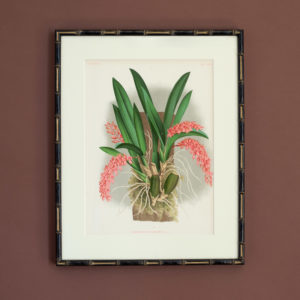
Linden Botanicals, Rodriguezia Bungerothi,
£175 eachLinden Botanicals, Rodriguezia Bungerothi,
L’Illustration Horticole, was a monthly horticultural review, founded in 1854 in Ghent, Belgium, by Ambroise Verschaffelt, a nurseryman who specialised in new plant introductions from South America. The lavish illustrations were produced by some of the very best botanical artists and lithographers – A. Goosens, P. De Pannemaeker and J. Goffart. The L’Illustration Horticole although founded by Jean Jules Linden (1817 – 1898) became a collaborative effort of many great horticulturists and field botanists of the day. Jean Linden in his own right was a renowned orchid grower and collector. Each monthly edition featured chromolithograph of botanical prints. Plants such as orchids, camellias, roses and leafy plants such as ferns and palm trees were represented. The magazine’s scope included pictures, descriptions, the history and culture of “the most remarkable plants,” new introductions, horticultural history, botanical expeditions, and accounts of the major expositions and of new works on botany and horticulture as well as garden descriptions and layouts.£175 each -
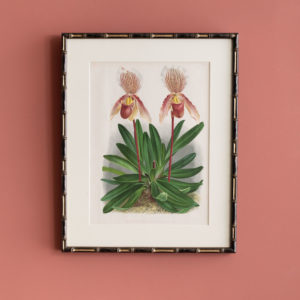
Linden Botanicals,
£175 eachLinden Botanicals,
L’Illustration Horticole, was a monthly horticultural review, founded in 1854 in Ghent, Belgium, by Ambroise Verschaffelt, a nurseryman who specialised in new plant introductions from South America. The lavish illustrations were produced by some of the very best botanical artists and lithographers – A. Goosens, P. De Pannemaeker and J. Goffart. The L’Illustration Horticole although founded by Jean Jules Linden (1817 – 1898) became a collaborative effort of many great horticulturists and field botanists of the day. Jean Linden in his own right was a renowned orchid grower and collector. Each monthly edition featured chromolithograph of botanical prints. Plants such as orchids, camellias, roses and leafy plants such as ferns and palm trees were represented. The magazine’s scope included pictures, descriptions, the history and culture of “the most remarkable plants,” new introductions, horticultural history, botanical expeditions, and accounts of the major expositions and of new works on botany and horticulture as well as garden descriptions and layouts.£175 each -
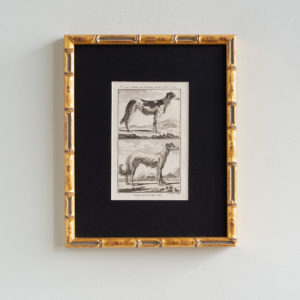
18th Century French Engravings of Dogs
£175 each18th Century French Engravings of Dogs
Published for, Histoire naturelle, générale et particulière (1749–1804), which was the first modern attempt to systematically present all existing knowledge in the fields of natural history, geology, and anthropology.£175 each -
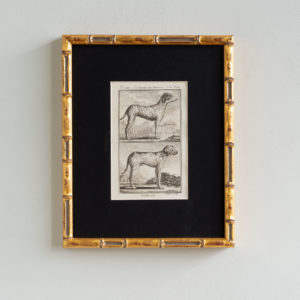
18th Century French Engravings of Dogs
£175 each18th Century French Engravings of Dogs
Published for, Histoire naturelle, générale et particulière (1749–1804), which was the first modern attempt to systematically present all existing knowledge in the fields of natural history, geology, and anthropology.£175 each -
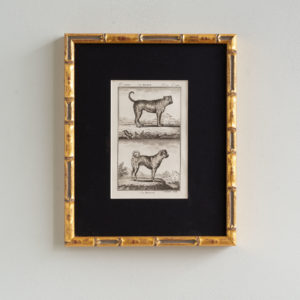
18th Century French Engravings of Dogs
£175 each18th Century French Engravings of Dogs
Published for, Histoire naturelle, générale et particulière (1749–1804), which was the first modern attempt to systematically present all existing knowledge in the fields of natural history, geology, and anthropology.£175 each -
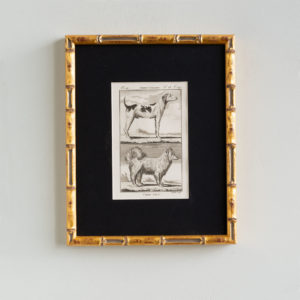
18th Century French Engravings of Dogs
£175 each18th Century French Engravings of Dogs
Published for, Histoire naturelle, générale et particulière (1749–1804), which was the first modern attempt to systematically present all existing knowledge in the fields of natural history, geology, and anthropology.£175 each -
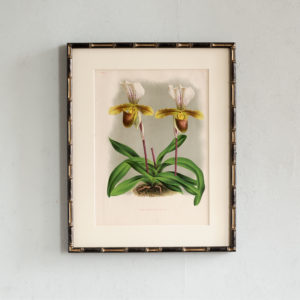
Linden Botanicals
£175 eachLinden Botanicals
L’Illustration Horticole, was a monthly horticultural review, founded in 1854 in Ghent, Belgium, by Ambroise Verschaffelt, a nurseryman who specialised in new plant introductions from South America. The lavish illustrations were produced by some of the very best botanical artists and lithographers – A. Goosens, P. De Pannemaeker and J. Goffart. The L’Illustration Horticole although founded by Jean Jules Linden (1817 – 1898) became a collaborative effort of many great horticulturists and field botanists of the day. Jean Linden in his own right was a renowned orchid grower and collector. Each monthly edition featured chromolithograph of botanical prints. Plants such as orchids, camellias, roses and leafy plants such as ferns and palm trees were represented. The magazine’s scope included pictures, descriptions, the history and culture of “the most remarkable plants,” new introductions, horticultural history, botanical expeditions, and accounts of the major expositions and of new works on botany and horticulture as well as garden descriptions and layouts.£175 each -
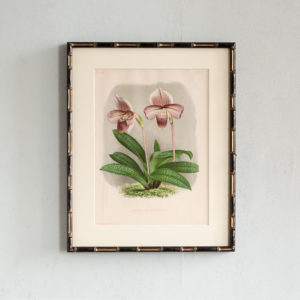
Linden Botanicals
£175 eachLinden Botanicals
L’Illustration Horticole, was a monthly horticultural review, founded in 1854 in Ghent, Belgium, by Ambroise Verschaffelt, a nurseryman who specialised in new plant introductions from South America. The lavish illustrations were produced by some of the very best botanical artists and lithographers – A. Goosens, P. De Pannemaeker and J. Goffart. The L’Illustration Horticole although founded by Jean Jules Linden (1817 – 1898) became a collaborative effort of many great horticulturists and field botanists of the day. Jean Linden in his own right was a renowned orchid grower and collector. Each monthly edition featured chromolithograph of botanical prints. Plants such as orchids, camellias, roses and leafy plants such as ferns and palm trees were represented. The magazine’s scope included pictures, descriptions, the history and culture of “the most remarkable plants,” new introductions, horticultural history, botanical expeditions, and accounts of the major expositions and of new works on botany and horticulture as well as garden descriptions and layouts.£175 each -
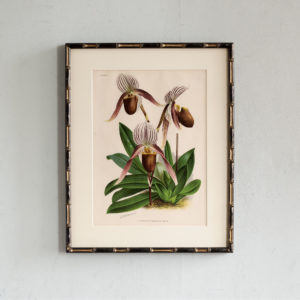
Linden Botanicals
£175 eachLinden Botanicals
L’Illustration Horticole, was a monthly horticultural review, founded in 1854 in Ghent, Belgium, by Ambroise Verschaffelt, a nurseryman who specialised in new plant introductions from South America. The lavish illustrations were produced by some of the very best botanical artists and lithographers – A. Goosens, P. De Pannemaeker and J. Goffart. The L’Illustration Horticole although founded by Jean Jules Linden (1817 – 1898) became a collaborative effort of many great horticulturists and field botanists of the day. Jean Linden in his own right was a renowned orchid grower and collector. Each monthly edition featured chromolithograph of botanical prints. Plants such as orchids, camellias, roses and leafy plants such as ferns and palm trees were represented. The magazine’s scope included pictures, descriptions, the history and culture of “the most remarkable plants,” new introductions, horticultural history, botanical expeditions, and accounts of the major expositions and of new works on botany and horticulture as well as garden descriptions and layouts.£175 each -
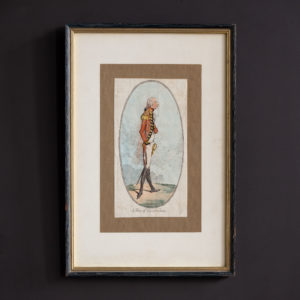
William Frederick, 2nd Duke of Gloucester (‘A slice of Glo’ster cheese’) by James Gillray
£160William Frederick, 2nd Duke of Gloucester (‘A slice of Glo’ster cheese’) by James Gillray
A whole length hand-coloured Georgian caricature-portrait of Prince William Frederick of Gloucester. Designed in an oval setting, the Prince is shown in profile, facing rightwards, and bearing a strong and suggestive resemblance to his uncle King George III. He is shown wearing military uniform, having served in Flanders in 1794 during the Revolutionary Wars. The Prince, later the Duke, of Gloucester had become popularly and affectionately known as 'Slice of Gloster' or simply 'Slice' by the early 1700s.£160 -
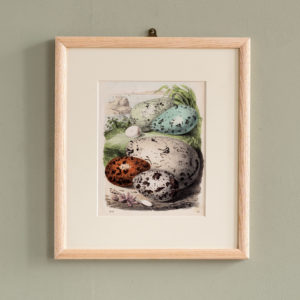
Nineteenth century, Bird-Egg lithographs,
£140Nineteenth century, Bird-Egg lithographs,
Carl Hoffmann (fl. ca. 1833-42) was a printer and publisher in Stuttgart£140 -
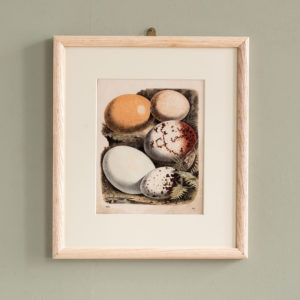
Nineteenth century, Bird-Egg lithographs,
£140Nineteenth century, Bird-Egg lithographs,
Carl Hoffmann (fl. ca. 1833-42) was a printer and publisher in Stuttgart£140 -
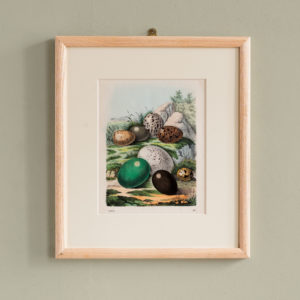
Nineteenth century, Bird-Egg lithographs,
£140Nineteenth century, Bird-Egg lithographs,
Carl Hoffmann (fl. ca. 1833-42) was a printer and publisher in Stuttgart£140 -
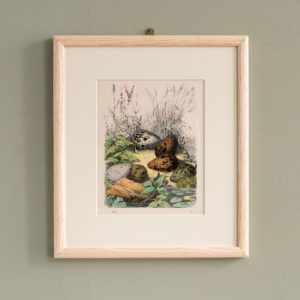
Nineteenth century, Bird-Egg lithographs,
£140Nineteenth century, Bird-Egg lithographs,
Carl Hoffmann (fl. ca. 1833-42) was a printer and publisher in Stuttgart£140 -
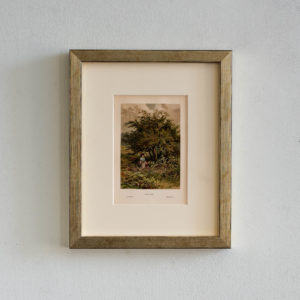
Nineteenth century arboreal prints,
£140 eachNineteenth century arboreal prints,
European trees published in London c1880. Mounted in cream framed in pale gold. 'Hawthorn'£140 each -
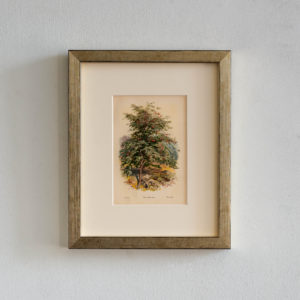
Nineteenth century arboreal prints,
£140 eachNineteenth century arboreal prints,
European trees published c1880. Mounted in cream framed in pale gold. 'Mountain Ash'£140 each -
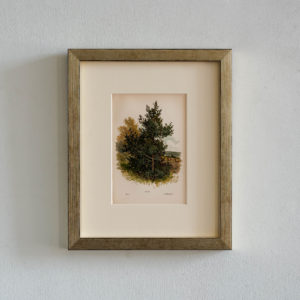
Nineteenth century arboreal prints,
£140 eachNineteenth century arboreal prints,
European trees published c1880. Mounted in cream framed in pale gold. 'Holly'.£140 each -

Like Father Like Son
£120Like Father Like Son
A framed Victorian advertisement poster for Frisbys Boots featuring the War Hero Frederick Sleigh Roberts, 1st Earl Roberts and his son, killed at the Battle of Colenso in the Boer War.£120 -
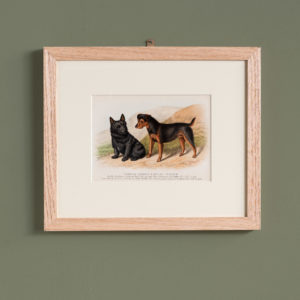
British Dogs 1882 – Scotch Terrier & Welsh Terrier,
£120 each -
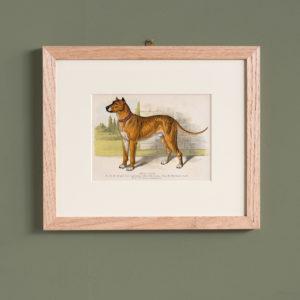
British Dogs 1882 – Great Dane
£120 each -
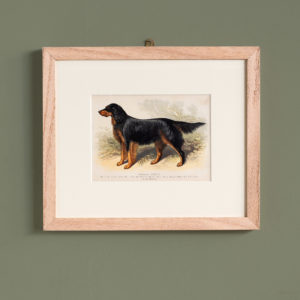
British Dogs 1882 – Gordon Setter,
£120 each -
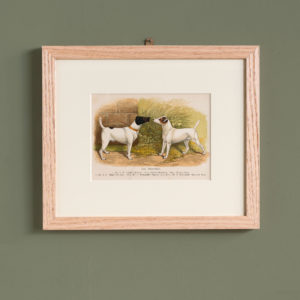
British Dogs 1882 – Fox Terriers,
£120 each -
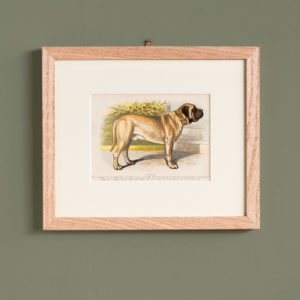
British Dogs 1882 – Mastiff,
£120 each -
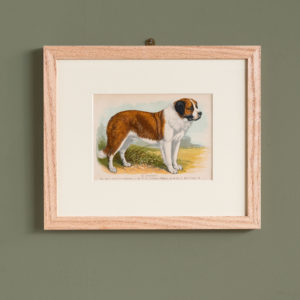
British Dogs 1882 – St. Bernard,
£120 each -
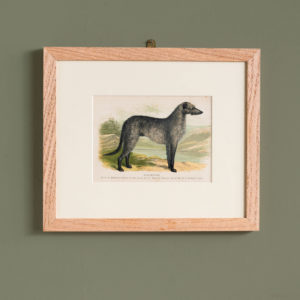
British Dogs 1882 – Deerhound,
£120 each -
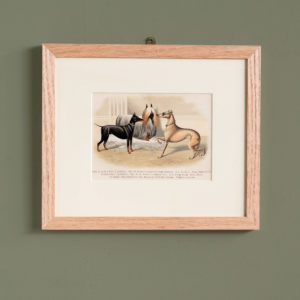
British Dogs 1882 – Black & Tan Terrier, Yorkshire Terrier, Italian Greyhound,
£120 eachBritish Dogs 1882 – Black & Tan Terrier, Yorkshire Terrier, Italian Greyhound,
Illustrations of 'Dogs of the Day'£120 each -
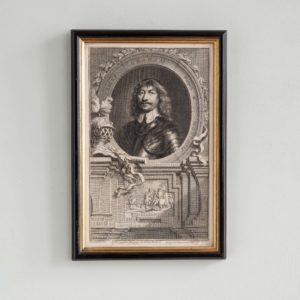
James Graham Marquis of Montrose
£120James Graham Marquis of Montrose
A framed copper plate engraving of James Graham, the Great 1st Marquis of Montrose, Hannibal of the Highlands, by the Dutch engraver Jacobus Houbrackenn, struck in 1740.£120 -
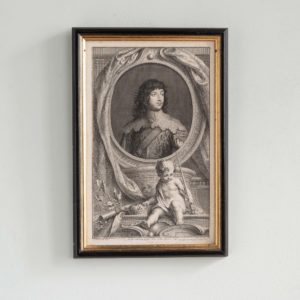
William Russell Earl of Bedford,
£120 -
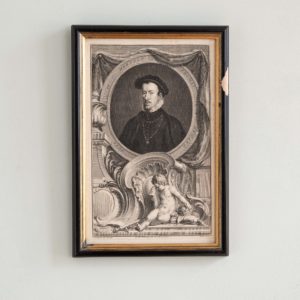
Thomas Howard, Duke of Norfolk,
£120 -
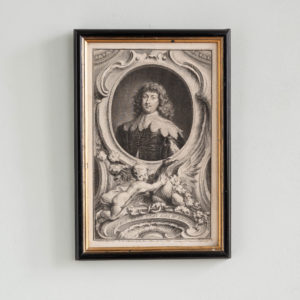
George Lord Digby, Earl of Bristol,
£120George Lord Digby, Earl of Bristol,
A framed copper plate engraving of George Digby Second Earl of Bristol by the Dutch engraver Jacobus Houbrackenn, struck in 1740.£120 -
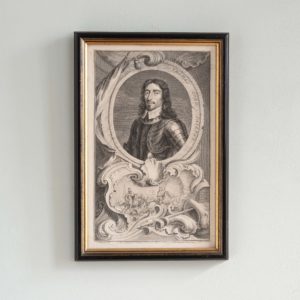
Thomas Lord Fairfax,
£120 -
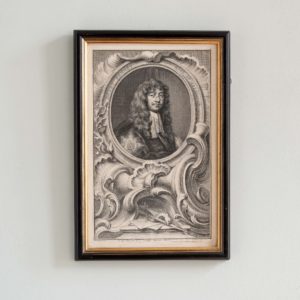
Henry Bennet, Earl of Arlington
£120Henry Bennet, Earl of Arlington
A framed copper plate engraving of the courtier, politician and original member of the CABAL, Henry Bennet, first Earl of Arlington by the Dutch engraver Jacobus Houbrackenn, struck in 1739.£120 -
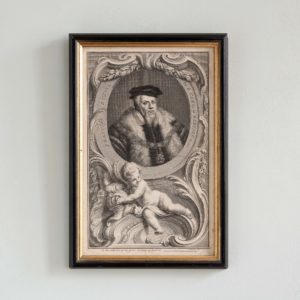
Francis Russell 2nd Earl of Bedford,
£120Francis Russell 2nd Earl of Bedford,
A framed copper plate engraving of James Graham, Francis Russell, second Earl of Bedford by the Dutch engraver Jacobus Houbrackenn, struck in 1740.£120 -
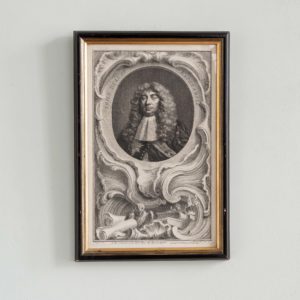
John, Duke of Lauderdale
£120 -
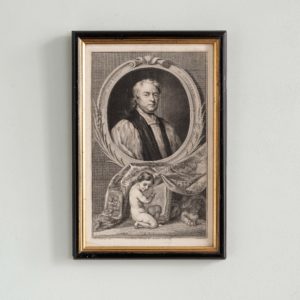
Archbishop Tillotson
£120Archbishop Tillotson
A framed copper plate engraving of John Tillotson, Archbishop of Canterbury, by the Dutch engraver Jacobus Houbrackenn, struck in 1740.£120 -
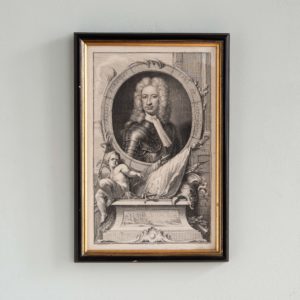
Charles Mordaunt, Earl of Peterborough,
£120Charles Mordaunt, Earl of Peterborough,
A framed copper plate engraving of Charles Mordaunt, 3rd Earl of Peterborough, by the Dutch engraver Jacobus Houbrackenn, struck in 1740.£120 -
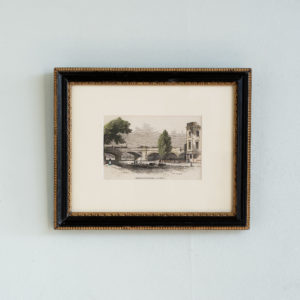
Bridge, Church Street, Vauxhall.
£120Bridge, Church Street, Vauxhall.
This view shows Bridge Street which was the Thames end of Lambeth Road and famously appeared 100 years later in the Ealing film, Passport to Pimlico!£120 -
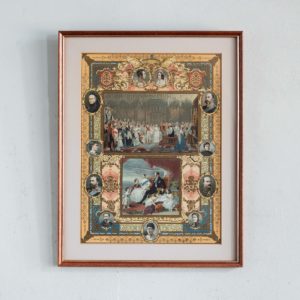
The Marriage of Queen Victoria
£80The Marriage of Queen Victoria
Original colour framed Chromolithograph showing the marriage of Queen Victoria to Prince Albert of Saxe Coburg & Gotha in the year 1846. Plate IV of a set issued by the Illustrated London News Diamond Jubilee Portrait Collection.£80 -
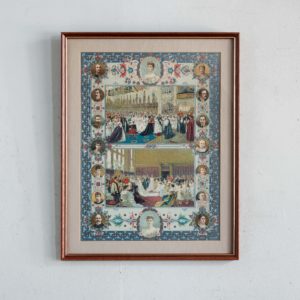
The Marriage of Queen Victoria
£80The Marriage of Queen Victoria
Original colour framed Chromolithograph showing the marriage of Queen Victoria to Prince Albert of Saxe Coburg & Gotha in the year 1846.£80
Featured Items
-
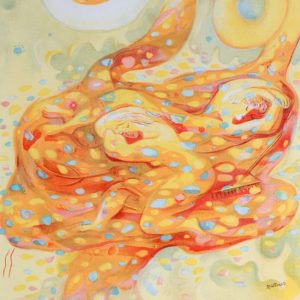
Autumn by Abraham Rattner, Verve Vol. 1 / No. 3.
£600Autumn by Abraham Rattner, Verve Vol. 1 / No. 3.
The Verve Review was a purposefully luxurious. It ran from 1937 to 1960, but with only 38 editions available, due to the high degree of design and editorial work dedicated to each issue. Each edition contained unique lithographic prints, commissioned by the editor, and each cover a double-page lithograph elaborated by one of the artists contained within. It was the brainchild of its editor Stratis Eleftheriades, a Greek National who moved to Paris in the early thirties to take part in the growing Modernist movement, writing under the name of Teriade.£600 -
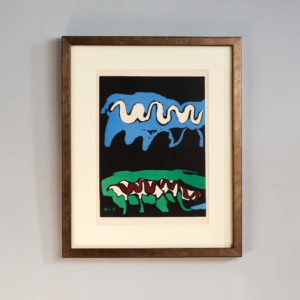
The Four Elements, Earth by Francisco Bores, Verve Vol. 1 / No. 1.
£600The Four Elements, Earth by Francisco Bores, Verve Vol. 1 / No. 1.
The Verve Review was a purposefully luxurious. It ran from 1937 to 1960, but with only 38 editions available, due to the high degree of design and editorial work dedicated to each issue. Each edition contained unique lithographic prints, commissioned by the editor, and each cover a double-page lithograph elaborated by one of the artists contained within. It was the brainchild of its editor Stratis Eleftheriades, a Greek National who moved to Paris in the early thirties to take part in the growing Modernist movement, writing under the name of Teriade.£600 -
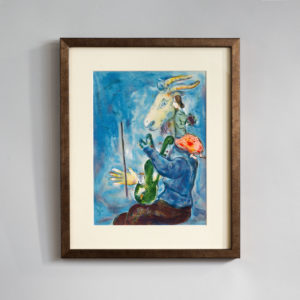
Printemps by Marc Chagall, Verve Vol. 1 / No. 3.
£800Printemps by Marc Chagall, Verve Vol. 1 / No. 3.
The Verve Review was a purposefully luxurious. It ran from 1937 to 1960, but with only 38 editions available, due to the high degree of design and editorial work dedicated to each issue. Each edition contained unique lithographic prints, commissioned by the editor, and each cover a double-page lithograph elaborated by one of the artists contained within. It was the brainchild of its editor Stratis Eleftheriades, a Greek National who moved to Paris in the early thirties to take part in the growing Modernist movement, writing under the name of Teriade.£800 -
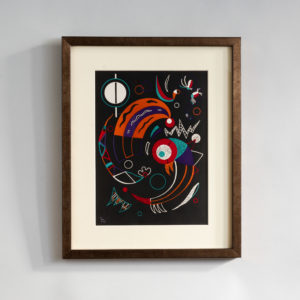
Comets by Wassily Kandinsky, Verve Vol. 1 / No. 2.
£800Comets by Wassily Kandinsky, Verve Vol. 1 / No. 2.
The Verve Review was a purposefully luxurious. It ran from 1937 to 1960, but with only 38 editions available, due to the high degree of design and editorial work dedicated to each issue. Each edition contained unique lithographic prints, commissioned by the editor, and each cover a double-page lithograph elaborated by one of the artists contained within. It was the brainchild of its editor Stratis Eleftheriades, a Greek National who moved to Paris in the early thirties to take part in the growing Modernist movement, writing under the name of Teriade.£800
